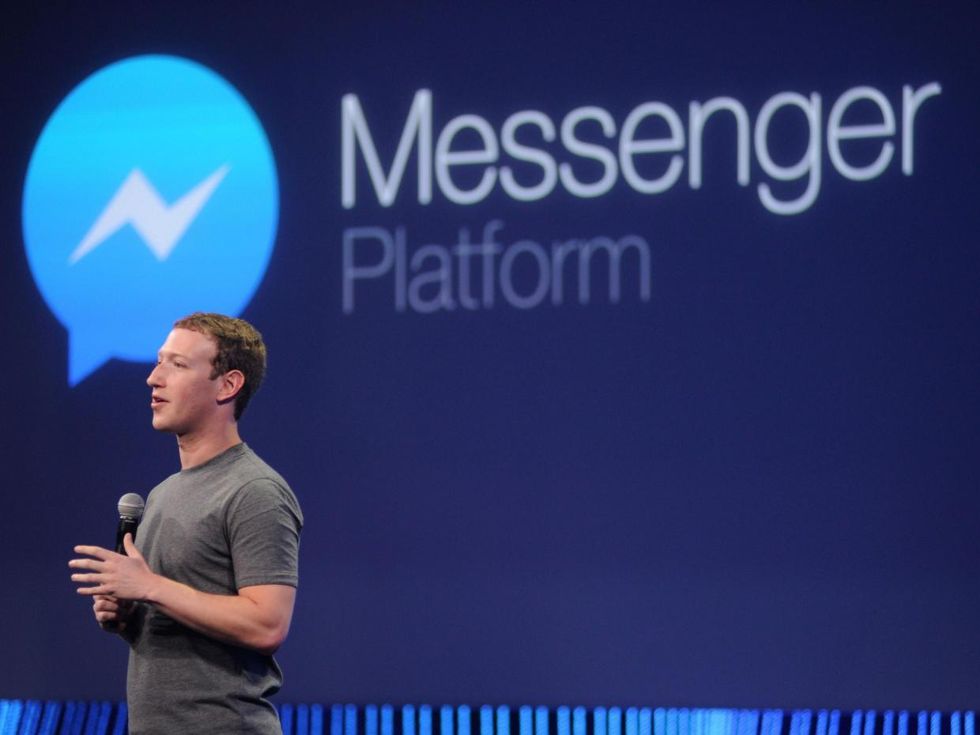Science & Tech
Brian Fung
Jul 03, 2016

Clickbait.
Nobody likes it, and yet it’s strangely irresistible. You kind of hate yourself after indulging in it, the Internet equivalent of being force-fed melted Jolly Ranchers by the spoonful. But as much as clickbait’s trickster headlines inspire self-loathing, it hardly compares to the amount of ill-will it engenders toward traffic-hungry, trigger-happy media outlets that think firing off lots of popcorny articles, shotgun-style, will net them a few extra ad impressions.
Well, Facebook users are fed up with clickbait headlines, and they’re fighting back with one of the only tools at their disposal: the like button.
For a while now, users have told Facebook in surveys they prefer headlines that spell out what’s contained in the story. That doesn’t stop them from clicking on stories that leave the news out of the title, though — and that's reflected in the data Facebook gathers on its users, said Adam Mosseri, vice president of product management.
"If you measure just clicks, no, they'll click more on things where you're actually withholding things in the title," he said. "But they'll spend less time actually reading it once they click."
That makes some amount of sense. But Mosseri continued: "Another pattern we see is that they'll like a story, click on it, and come back immediately because they feel deceived and un-like it. We do see that reflected in behavior."
Take the intelligence test blowing up FacebookPeople who feel misled are actively going back to the News Feed and removing their likes from stories, according to Facebook. That's significant. It's an extra step, an act of commission, one that takes time and thought. And it's an interesting way users who lack other means to voice their displeasure have devised as a kind of stop-gap measure for fighting back.
It’s unclear how widespread this practice is, and Facebook declined to elaborate. But given the incredible importance that likes and engagement can have on the performance of a given article, it does suggest that there’s a limit to the traction publishers may get from clickbait.
Researchers who've investigated clickbait seem to have settled on a few theories as to why it works. The key finding is that clickbait headlines generate an emotional response that in many ways is out of our control. In one recent paper, computer scientists concluded after analyzing tens of thousands of headlines that the more intensely aligned a headline was toward a positive or negative emotion, the more likely it would be to produce a click.
Clickbait also exploits the reward centers of our brains. As Wired wrote last year, you can "think of that clickbait headline as a signal, an imminent sign you’re about to see some super-adorbz animal buddies. … You might assume our brains get that wonderful squirt of dopamine after we get the reward (the pics), but it turns out dopamine levels go up much sooner."
In fact, the mere sight of a clickbait headline is enough to trigger the release of happy chemicals, psychologists have found.
In light of that research, it makes total sense why you might be outraged by an article that didn't produce the expected reward. The feeling, too, that you've been manipulated or cheated by some process you're helpless to resist only heightens the resentment. And to hear that some users are taking back their likes shows how little power they have to express themselves and force the system to change.
Facebook has periodically taken steps to address clickbait. In 2014, it tweaked its algorithm over concerns that those types of articles could "drown out" other types of content. It did so again earlier this year to prioritize stories that the company thought people actually wanted to read. In both moves, an important metric Facebook considered was the amount of time users spent, or were expected to spend, on a given story — the idea being that the longer you take before coming back to Facebook, the likelier it is that you found the content meaningful and worth your time.
Everyone’s definition of clickbait is a little different. Here’s how The Washington Post’s executive editor, Marty Baron, described it to New York Magazine:
The way I would define it is, it has a headline that tries to trick you to read the story and when you get to the story there’s nothing of any substance.
Of course, many substantive news stories now are written with webby, social-media-friendly headlines, too. That’s by design, in a world where even actual news is forced to compete with cat listicles and Disney-princess personality quizzes.
The results are clear: Clicky headlines attract readers. The responsibility of journalists is to make sure there’s something worth reading on the other side.
Copyright: Washgington Post
More: 11 things you might want to delete from your Facebook page
Top 100
The Conversation (0)














